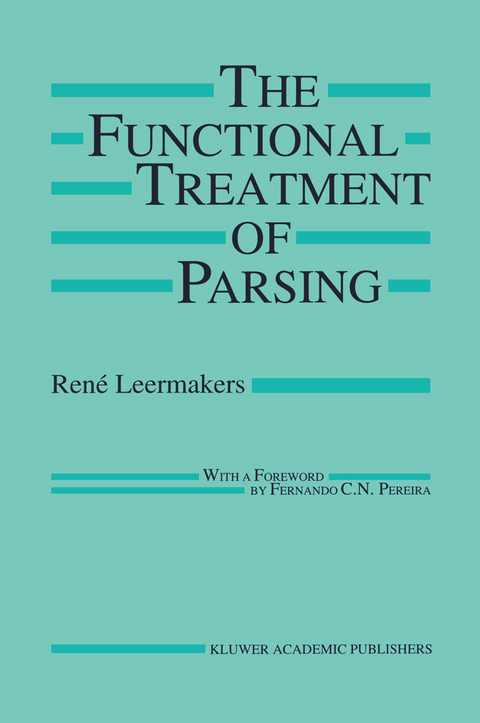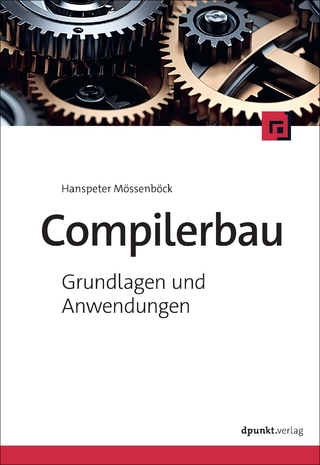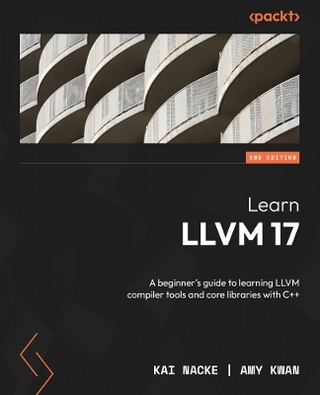
The Functional Treatment of Parsing
Springer-Verlag New York Inc.
978-1-4613-6397-2 (ISBN)
The Functional Treatment of Parsing provides a functional framework within which the different traditional techniques are restated and unified. The resulting theory provides new recursive implementations of parsers for context-free grammars. The new implementations, called recursive ascent parsers, avoid explicit manipulation of parse stacks and parse matrices, and are in many ways superior to conventional implementations. They are applicable to grammars for programming languages as well as natural languages.
The book has been written primarily for students and practitioners of parsing technology. With its emphasis on modern functional methods, however, the book will also be of benefit to scientists interested in functional programming. The Functional Treatment of Parsing is an excellent reference and can be used as a text for a course on the subject.
1 Context-Free Grammars.- 2 Bunch Notation.- 2.1 Bunches.- 2.2 Algorithmic interpretation.- 3 Grammar Interpretations.- 3.1 The natural interpretation.- 3.2 Derivation.- 3.3 The Lambek types.- 3.4 Recognition functions.- 3.5 Generation.- 3.6 Summary of interpretations.- 4 Recursive Descent.- 4.1 The functional interpretation.- 4.2 Termination.- 4.3 Complexity and memoization.- 4.4 Look ahead.- 4.5 Error recovery.- 5 Grammar Transformations.- 5.1 Making grammars bilinear.- 5.2 Recursive descent for Eg.- 5.3 Partial elimination of left recursion.- 5.4 Recursive descent for FG.- 6 Recursive Ascent.- 6.1 The algorithm.- 6.2 Termination.- 6.3 A variant that works with strings.- 6.4 Complexity.- 6.5 EBNF grammars.- 7 Parse Forest.- 7.1 Informal introduction.- 7.2 The grammar E’G.- 7.3 Forest for bilinear grammars.- 7.4 The set Q.- 7.5 Standard Earley parser.- 7.6 Earley versus Earley.- 8 Attribute Grammars.- 8.1 Notational conventions.- 8.2 Attribute functions.- 8.3 Example.- 8.4 Function graphs.- 8.5 Attribute grammar parser.- 8.6 Direct attribute evaluation.- 9 Lr Parsers.- 9.1 LR(0) recognizer.- 9.2 The deterministic case.- 9.3 Implementation with stacks.- 9.4 Some variants.- 9.5 Look ahead.- 9.6 Attributes.- 9.7 Continuations.- 9.8 Error recovery.- 9.9 The methods by Lang and Tornita.- 9.10 Evaluation w.r.t. standard approaches.- 9.11 Earley versus LR.- 10 Some Notes.- 10.1 Context-free grammars.- 10.2 Names.- 10.3 Bunches.- 10.4 Functional programming.- 10.5 Grammar transformations.- 10.6 Memo-functions.- 10.7 Parse forests.- 10.8 Earley.- 10.9 Attribute grammars.- 10.10 Natural language.- 10.11 Other applications.- 10.12 LR parsing.- 10.13 EBNF.- 10.14 Conclusion.- References.
| Reihe/Serie | The Springer International Series in Engineering and Computer Science ; 242 |
|---|---|
| Zusatzinfo | XVI, 158 p. |
| Verlagsort | New York, NY |
| Sprache | englisch |
| Maße | 160 x 240 mm |
| Themenwelt | Geisteswissenschaften ► Sprach- / Literaturwissenschaft ► Sprachwissenschaft |
| Mathematik / Informatik ► Informatik ► Programmiersprachen / -werkzeuge | |
| Informatik ► Theorie / Studium ► Compilerbau | |
| ISBN-10 | 1-4613-6397-7 / 1461363977 |
| ISBN-13 | 978-1-4613-6397-2 / 9781461363972 |
| Zustand | Neuware |
| Haben Sie eine Frage zum Produkt? |
aus dem Bereich


